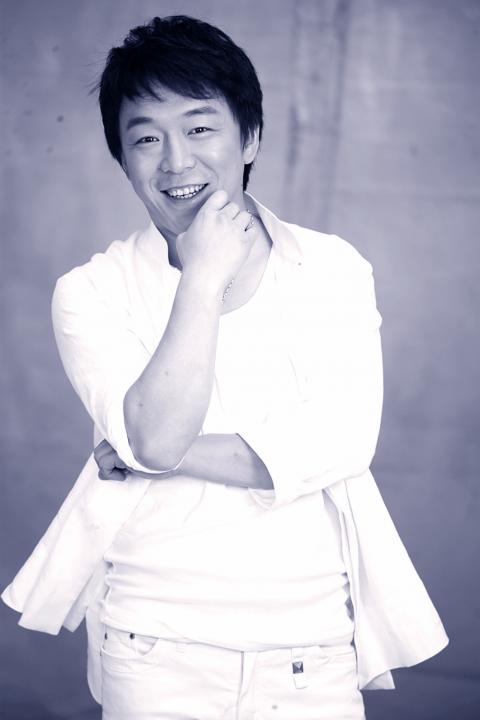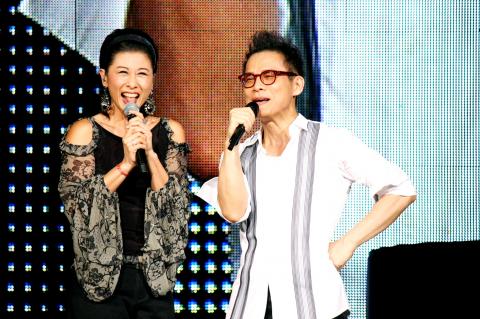The Golden Horse Film Festival (金馬獎), which will climax on Nov. 24 when Taiwan’s version of the Oscars are given out, remains the biggest film industry event for the country and the one with the most significant international profile, (despite all the negative coverage it is often able to bring on itself). And this year, even before the first warm up events are underway, the Golden Horse organizers have brought down a torrent of abuse due to their selection of Chinese actor Huang Bo (黃渤) as one of the hosts. Irate netizens are asking: “Have all Taiwanese male celebrities suddenly died?”
Well, its not like the Golden Horse Awards were an exclusively Taiwanese affair. That’s probably why no eyebrows where raised when Bowie Tsang (曾寶儀) and Eric Tsang (曾志偉), a father and daughter duo from Hong Kong, took on hosting duties last year, with notable success. It seemed no more than appropriate when one of the big winners of 2011 was A Simple Life (桃姐), with Hong Kong screen legend Deannie Yip (葉德嫻), picking up Best Actress.
Bo, meanwhile, has perfectly good credentials to serve as a host. He won Best Actor at the Golden Horse Awards back in 2009, subsequently served on the jury and starred in the massive Taiwanese big screen police soap opera Black and White (痞子英雄首部曲:全面開戰).

Photo: Taipei Times
This year, Bo will be working together with Bowie Tsang, who is back for a return engagement.
A report on China Economic Net (ce.cn) said that Bo not only did not feel bad about this reception, but went out of his way to welcome questions, saying that people should have a right to express themselves. There is something deeply ironic about this, but Pop Stop will leave readers to draw their own conclusions. Supporters of Bo’s selection, that include Tsang father and daughter, welcome this line up as a way of injecting greater variety into what had become an often stilted affair. Although Bo is the first person from China to take on host duties at the Golden Horse, Chinese films have increasingly featured in the award ceremony. “It’s a great honor for me to be a host at Chinese-language cinema’s big party. The Golden Horse Awards are an event full of suspense, and I am excited to see what we can do to make it even more appealing through our efforts.”
The gossip media is also all aghast with news that supermodel Lin Chi-ling (林志玲) is possibly showing signs of age, and has gone so far as to admit to being 38 years old. Lin has been working hard in Japan and China, only making occasional visits back to Taiwan, and local media have become mesmerized by the issue of whether she has undergone plastic surgery, a topic that is in danger of becoming more important than speculation about when she will marry Jerry Yan (言承旭).

Photo: Taipei Times
In reports earlier this week, Lin showed her media savvy, palming away media questions with lighthearted banter. “Everyone has become so familiar with the way I look over the last 10 years,” she said. “I wouldn’t want to change anything, and if I did, ‘old father heaven’ would need to give me a spanking.” She added that she has been working very hard and that her body has been telling her to slow down.
While Lin continues to look pretty good on and off the screen, songstress Sally Yeh (葉蒨文) has a harder fight on her hands in trying to look young … or at least to project youthfulness. Pop Stop would hate to discriminate on grounds of age, but it just needs to be said that the 51-year-old Yeh really does not need to show quite so much buttock, crotch or breast. In her Intimately Yours 2012 concert in Hong Kong earlier this week, she made some audience members feel that intimacy had got slightly out of hand, dressing in a selection of revealing costumes that just got a little bit too much in your face.
Even Now.com, not particularly known for its restraint, suggested that she had a perfectly good voice, and that an entertainer of such years did not have to resort to giving it away in such a fashion. At the end of the show, Yeh said she was not totally satisfied. “The audience was so enthusiastic that I messed up on some of the dance steps,” she said. There were clearly plenty in the audience who weren’t complaining.

The canonical shot of an East Asian city is a night skyline studded with towering apartment and office buildings, bright with neon and plastic signage, a landscape of energy and modernity. Another classic image is the same city seen from above, in which identical apartment towers march across the city, spilling out over nearby geography, like stylized soldiers colonizing new territory in a board game. Densely populated dynamic conurbations of money, technological innovation and convenience, it is hard to see the cities of East Asia as what they truly are: necropolises. Why is this? The East Asian development model, with

June 16 to June 22 The following flyer appeared on the streets of Hsinchu on June 12, 1895: “Taipei has already fallen to the Japanese barbarians, who have brought great misery to our land and people. We heard that the Japanese occupiers will tax our gardens, our houses, our bodies, and even our chickens, dogs, cows and pigs. They wear their hair wild, carve their teeth, tattoo their foreheads, wear strange clothes and speak a strange language. How can we be ruled by such people?” Posted by civilian militia leader Wu Tang-hsing (吳湯興), it was a call to arms to retake

Desperate dads meet in car parks to exchange packets; exhausted parents slip it into their kids’ drinks; families wait months for prescriptions buy it “off label.” But is it worth the risk? “The first time I gave him a gummy, I thought, ‘Oh my God, have I killed him?’ He just passed out in front of the TV. That never happens.” Jen remembers giving her son, David, six, melatonin to help him sleep. She got them from a friend, a pediatrician who gave them to her own child. “It was sort of hilarious. She had half a tub of gummies,

The wide-screen spectacle of Formula One gets a gleaming, rip-roaring workout in Joseph Kosinski’s F1, a fine-tuned machine of a movie that, in its most riveting racing scenes, approaches a kind of high-speed splendor. Kosinski, who last endeavored to put moviegoers in the seat of a fighter jet in Top Gun: Maverick, has moved to the open cockpits of Formula One with much the same affection, if not outright need, for speed. A lot of the same team is back. Jerry Bruckheimer produces. Ehren Kruger, a co-writer on Maverick, takes sole credit here. Hans Zimmer, a co-composer previously, supplies the thumping